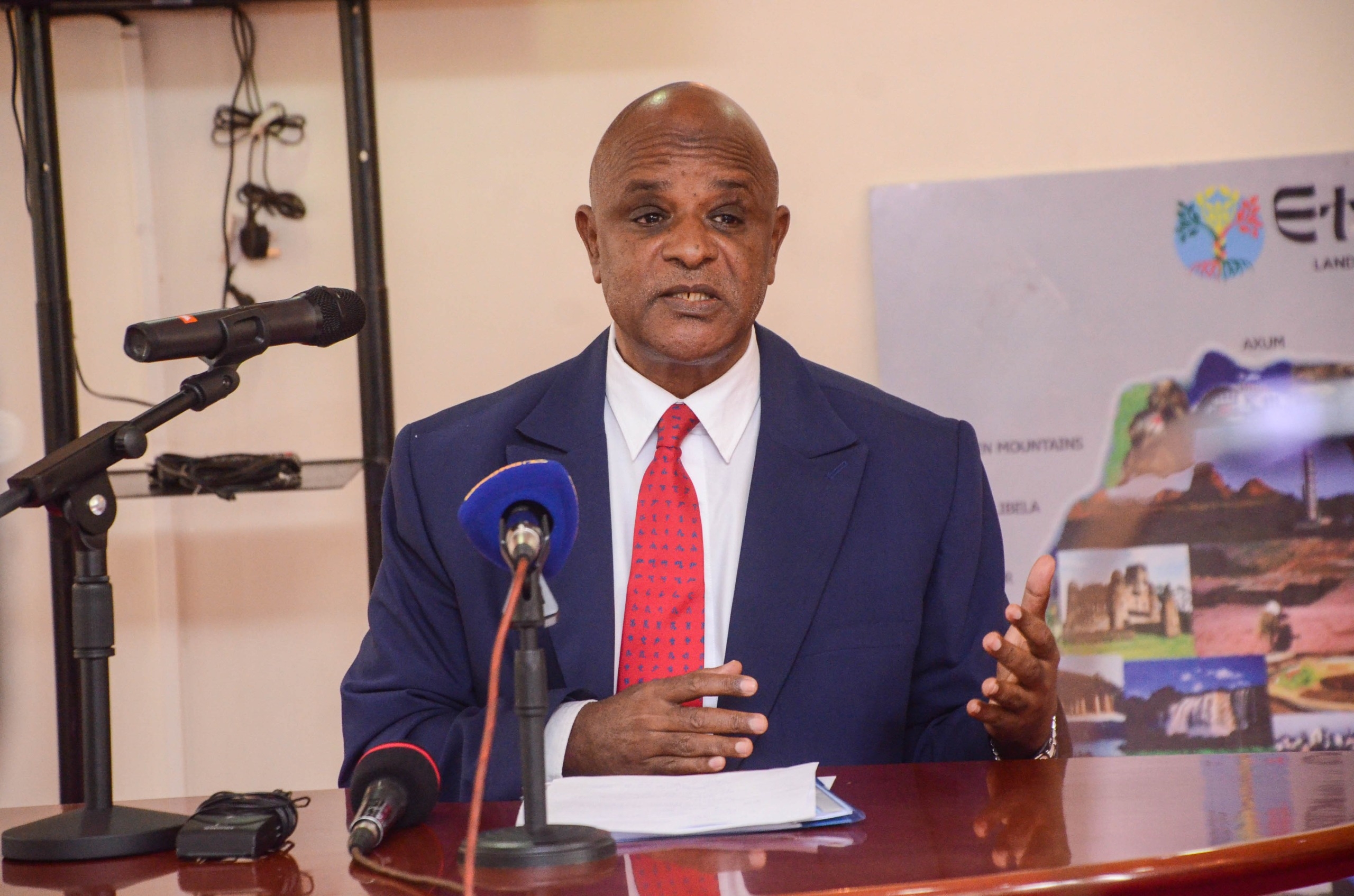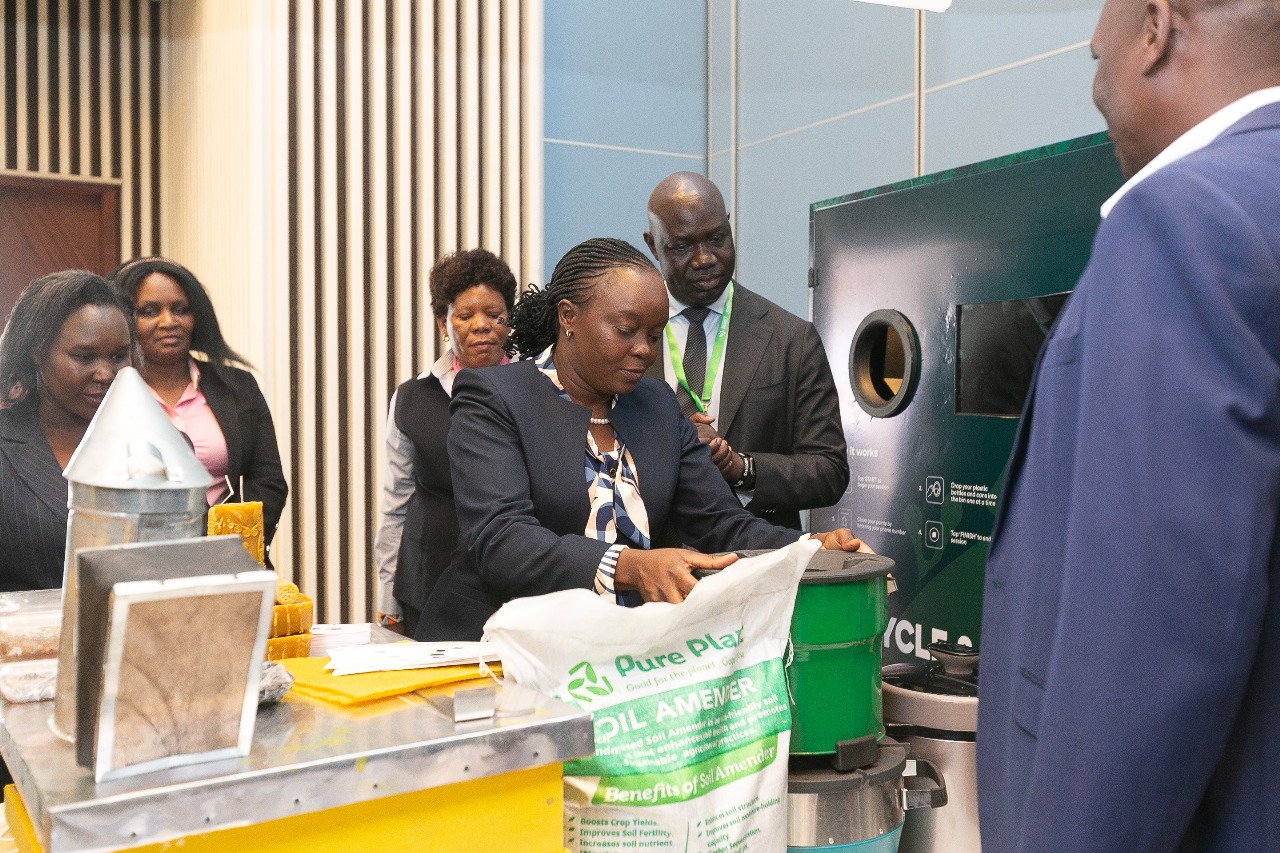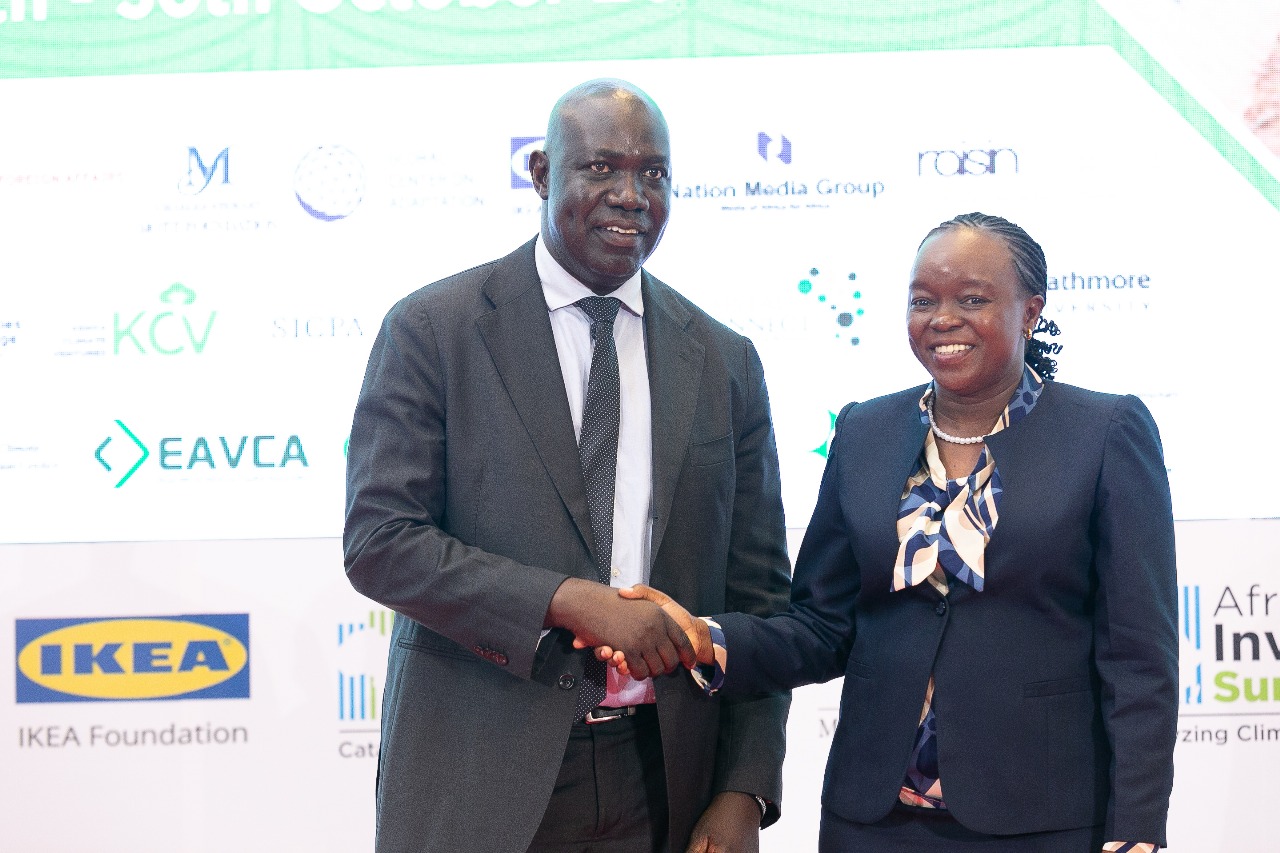
 Environment, Climate Change and Forestry Cabinet Secretary Dr Deborah Barasa at the Africa Climate Investment Summit in Nairobi. Looking on is Kenya Climate Innovation Center (KCIC) Chief Executive Officer Joseph Murabula/HANDOUT
Environment, Climate Change and Forestry Cabinet Secretary Dr Deborah Barasa at the Africa Climate Investment Summit in Nairobi. Looking on is Kenya Climate Innovation Center (KCIC) Chief Executive Officer Joseph Murabula/HANDOUTThe Africa Climate Investment Summit (ACIS 2025) has officially kicked off in Nairobi, bringing together global and regional stakeholders united by a common goal—to mobilise capital, build partnerships, and scale climate-smart enterprises across Africa.
Themed “Unlocking African Investments into the Green Economy,” the three-day summit is hosted by the Kenya Climate Innovation Center (KCIC) and has convened more than 100 leaders, government ministers, development partners, and innovators from across the continent and beyond.
Representatives from the World Bank, the UK Foreign, Commonwealth and Development Office (FCDO), and the Swiss Embassy are also attending, underscoring the importance of international collaboration in supporting Africa’s climate and development agenda.
Opening the summit, Environment Cabinet Secretary Deborah Barasa noted that climate action finance has been insufficient, inequitably distributed, and often debt-creating.
“Access is slow and complex, and domestic mobilisation is weak. As a result, Africa’s climate ambitions remain largely unfunded, deepening its vulnerability to climate shocks,” Barasa said.
Barasa called on investors to partner with Africa and let African nations generate competitive returns while building a resilient world.
“See Africa for what it is: the world's most promising emerging market for green investments,” she said.
KCIC Chief Executive Officer Joseph Murabula called for a paradigm shift in how Africa approaches climate investment—one that is led by Africans and powered by local innovation.
“Africa’s green transition cannot rely solely on external financing; it must be powered by African institutions, entrepreneurs, and investors,” said Murabula. “By unlocking local and regional capital, we are not only addressing climate challenges but building resilient economies and livelihoods.”
Murabula emphasised the need for stronger financial infrastructure and ecosystems that can support scalable climate action across sectors such as renewable energy, sustainable agriculture, and waste management.
Joao Cunha, Division Manager for Renewable Energy at the African Development Bank (AfDB), echoed the call for urgency and inclusivity, noting that despite contributing only four percent of global emissions, Africa suffers disproportionately from the effects of climate change.
“We have the potential to be the global leader in green interventions if we act right,” Cunha said.
“Climate action must be inclusive — women, youth, and marginalised communities must be at the center of the transition.”
 Kenya Climate Innovation Center (KCIC) Chief Executive Officer Joseph Murabula and Environment, Climate Change and Forestry Cabinet Secretary Dr Deborah Barasa at the Africa Climate Investment Summit in Nairobi/HANDOUT
Kenya Climate Innovation Center (KCIC) Chief Executive Officer Joseph Murabula and Environment, Climate Change and Forestry Cabinet Secretary Dr Deborah Barasa at the Africa Climate Investment Summit in Nairobi/HANDOUTThe summit’s opening session explored Africa’s opportunities in renewable energy, climate-smart agriculture, and nature-based solutions, highlighting the critical role of public-private partnerships in scaling sustainable initiatives.
Delegates also discussed the importance of de-risking instruments, blended finance models, and ecosystem strengthening to support climate enterprises across the continent.
Bodo Immink, Country Director for GIZ, urged policymakers and investors to view the green economy not only as an environmental necessity but also as Africa’s next major growth frontier.
“The green economy is not just an environmental imperative; it is an economic opportunity,” said Immink. “With the right investments, Africa can lead the world in sustainable production, circular business models, and inclusive innovation.”
Edward Mungai, Group CEO of KCIC Consulting, challenged African leaders to shift from commitment to concrete implementation.
“We must move from commitment to implementation. Africa’s climate economy will thrive when we combine leadership with execution—translating ambition into projects and projects into prosperity,” said Mungai.













